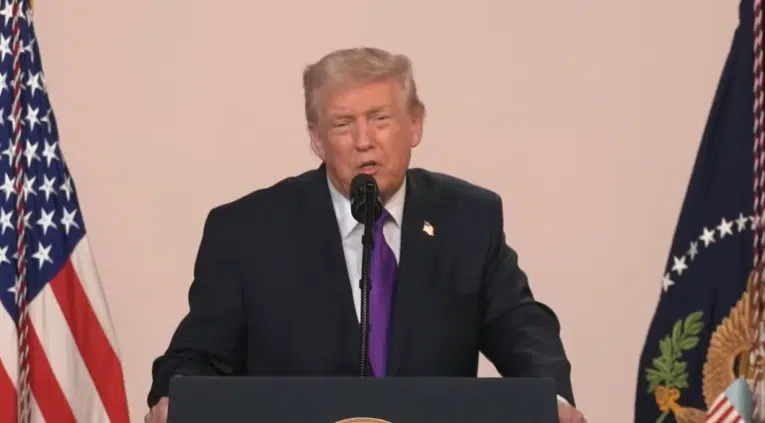On June 14, Americans for Limited Government in a Freedom of Information Act (FOIA) request asked the National Telecommunications and Information Administration (NTIA) for “[a]ll records relating to legal and policy analysis developed by or provided to NTIA concerning antitrust issues for the Internet Corporation for Assigned Names (ICANN) if NTIA relinquishes its responsibilities” over the domain name system.
The agency contacted us and we clarified and limited what we were looking for to simply between Jan. 1, 2014 through June 14 of this year. That covered the entire period of the transition, which was proposed publicly March 14, 2014, and the framework put forth by ICANN was approved by NTIA on June 9.
On Aug. 16 the agency responded to our FOIA request that “NTIA has conducted a thorough search for responsive records within its possession and control and found no records responsive to your request.” Nor did the agency claim any privileged exemptions under FOIA, which might have prevented such an analysis from being disclosed. Therefore, such an analysis did not exist.
Or so we thought. On Sept. 14, in a Senate Subcommittee on Oversight, Agency Action, Federal Rights and Federal Courts hearing, NTIA administrator Lawrence Strickling in his opening statement said, “Upon the community’s completion of the plan [in March] NTIA led an intensive interagency review to ensure it met these criteria. During this review, the Department of Justice assessed whether the transition presented any competition issues and at the end, on June the 9th, we found the plan satisfied each and every one of our criteria.”
Similarly, in a question from Senator Mike Lee (R-Utah) specifically on antitrust, who asked if the Department of Justice had been consulted on the antitrust question, Strickling replied, “During the evaluation of the transition plan, there was an interagency committee of federal agencies including the Department of Justice. As part of that process the Department of Justice looked at whether there were any competition concerns that might result from this transition and they concluded that there were none.”
NTIA needs to get its stories straight. The Wall Street Journal’s L. Gordon Crovitz did a full report on that FOIA and the lack of antitrust analysis. Why hasn’t NTIA given the Department of Justice analysis to the Journal to refute the story?
And why are we only hearing about this now, 16 days before the transition is to be complete? Strickling just testified about it. Why not simply post the Department of Justice analysis on the NTIA website for the world to see?
If the agency did actually perform an antitrust analysis prior to June 9, it most certainly should have been netted by our FOIA request, so why hasn’t NTIA produced it? Why did the agency say there were no responsive documents?
An obvious reason might be because the FOIA officer at NTIA simply did not find the analysis in its initial response to Americans for Limited Government. To be certain, Americans for Limited Government Foundation President Nathan Mehrens yesterday filed another FOIA request, this time explicitly asking for the Department of Justice assessment on “competition issues” referenced in Strickling’s testimony that supposedly took place prior to June 9.
But an equally plausible reason no antitrust analysis has turned up is because notice how Strickling never actually says the word “antitrust” when he refers to the interagency review. We would note there are many issues to do with competition in the domain name system market that do not necessarily invoke antitrust.
For example, if you read the actual interagency review Strickling talks about and what was specifically looked at by NTIA and the taskforce, there was no section on antitrust at all, not even a passing reference. You cannot find the word “antitrust” in the document. It is what prompted Americans for Limited Government to do the FOIA request. You can however find references to “promoting competition, consumer trust, and consumer choice in connection with any implementation of generic top-level domains (gTLDs),” for example.
But promoting competition in the implementation of new top-level domain names is not the same as performing an antitrust analysis on the potential monopoly powers ICANN will wield post-transition as the only entity in the world that bids out those domain names, or collecting hundreds of millions of dollars of exclusive fees for every domain name sold in the world.
This is not the first time in this process NTIA has failed to turn over legal analysis justifying its position on the transition. The first round of FOIA requests by Americans for Limited Government for legal and policy analysis providing authority to perform the transition revealed that NTIA did not address key constitutional and legal questions prior to announcing the transition in March 2014.
It wasn’t until after Congress started asking questions about it that the agency began producing legal justifications for the transition. But nothing from prior to the transition’s announcement. No privileged exemptions. The agency didn’t wonder about whether it had the authority.
The same thing appears to have happened here with the antitrust question. It wasn’t until Americans for Limited Government filed its FOIA request for the antitrust analysis that we heard a single peep out of NTIA to do with antitrust.
To be certain, the first document publicly available document on antitrust we’re aware of from NTIA was not posted until Aug. 16, in a Q&A purporting to answer a question about antitrust analysis, curiously the same exact day the agency responded to our FOIA. Again, in this Q&A NTIA used the same exact, carefully worded phrasing Strickling used in his testimony: “In its decision to move forward with the transition at this time, the U.S. Government did not identify any significant competitive issues relating to the proposed transition.”
Okay, then where is the antitrust analysis? Or is there no such analysis? Maybe the reason the agency and the Department of Justice did not identify any significant antitrust issues is because it did not look. Because if it had it might have turned up the June 1998 Clinton White Paper, which soon created the basis for ICANN’s contract with the government, explicitly considered the antitrust issue at the outset: “Several commenters suggested that the U.S. Government should provide full antitrust immunity or indemnification for the new corporation. Others noted that potential antitrust liability would provide an important safeguard against institutional inflexibility and abuses of power.”
To which, NTIA replied, “Applicable antitrust law will provide accountability to and protection for the international Internet community. Legal challenges and lawsuits can be expected within the normal course of business for any enterprise and the new corporation should anticipate this reality.”
That is, NTIA was saying that it would not provide antitrust immunity to ICANN when the time ever came it was no longer under a government contract, and that it would have to fully comply with antitrust law. Isn’t that a significant antitrust issue?
Or maybe it might have turned up the Cross Community Working Group (CCWG) on Enhancing ICANN Accountability’s March 10 document, which was addressed directly to NTIA administrator Lawrence Strickling, “IANA Stewardship Transition Proposal and Enhancing ICANN Accountability Recommendations.”
In Annex 15 on stress tests, on page 470, it highlights antitrust as a potential problem, daresay, a significant competitive issue: “Stress Test #3: Litigation arising from existing public policy, e.g., antitrust suit. In response, ICANN Board would decide whether to litigate, concede, settle, etc.”
The CCWG noted the consequences of an antitrust suit could include “Significant interference with existing policies and/or policy development relating to relevant activities,” and concluded that “Existing measures are inadequate.”
Or perhaps the works of A. Michael Froomkin and Mark A. Lemley in 2003, “ICANN and Antitrust,” which lays out the significant antitrust issues facing ICANN. Or maybe “ICANN’s Escape from Antitrust Liability,” a 2012 article by Justin T. Lepp in the Washington Law Review. Or even Milton Mueller’s response to Americans for Limited Government President Rick Manning’s Senate testimony on May 25 where he wrote, strikingly, that “The U.S. asserted the power to control changes in the root zone to protect Network Solutions (now Verisign) from antitrust liability, not to protect ICANN from foreign governments or to protect the open Internet.”
Even the Government Accountability Office (GAO) was able to find something on antitrust in its legal review of NTIA’s authority to perform the transfer, noting that a motivation for requiring NTIA to approve changes to the domain name system’s root zone file was to avert antitrust: “Another motivation, according to the former NTIA official, was to provide Network Solutions with a defense against allegations of antitrust violations.” Consider that, GAO had to ask not even a current NTIA official, but a former NTIA official to get anything on antitrust.
All we get from NTIA now on antitrust is see no evil, hear no evil, speak no evil.
I will go further and suggest the agency has deliberately avoided asking these questions since 2014 in order to help create the world Internet monopoly with ICANN at the top. But then, I’ve assumed this process was rigged from the very beginning. For example, the same GAO report referenced above was designed on the eve of the transition to shoot down any question of whether NTIA had legal authority to transfer government property, since that was the only significant legal question they were anticipating. That is, until Americans for Limited Government filed the antitrust FOIA. Now the agency appears to be engaged in a major CYA.
But to clarify, even if NTIA might otherwise have authority to transfer the IANA functions to ICANN, and even if it had performed an antitrust analysis, one obstacle remains and that is Congress, which has prohibited the transfer the past two fiscal years. It may well do so again. Ultimately, the question is before Congress to extend and strengthen its prohibition.
And as it considers what to do — including whether to take NTIA to court, as a resolution by U.S. Rep. Mike Kelly (R-Pa.) would do, for violating that defund as the agency has proceeded at lightning speed towards transition in blatant violation of the prohibition — it should consider this very real possibility, which is that once set free ICANN will manage to escape antitrust scrutiny altogether.
We noted with great interest ICANN’s response to Crovitz’s recent piece in the Wall Street Journal on the potential antitrust liabilities awaiting ICANN once its contract with NTIA expires at the end of the month. In its response to Crovitz, ICANN claims that “ICANN isn’t and never has been exempted from antitrust laws… No ruling in ICANN’s favor has ever cited an antitrust exemption as the rationale.”
But that could be a false comfort. In 2012, when name.space sued ICANN on antitrust grounds, ICANN argued that being a government vendor under contract, the Internet monopoly if it existed was “thrust upon” it. Therefore, antitrust did not apply.
ICANN explicitly argued that it “obtained the sole authority to delegate TLDs and select registries through ‘its agreements with the U.S. government.’ … Put simply, ICANN did not conduct its operations to unlawfully acquire the authority to designate TLDs and select registries; thus, this authority does not support name.space’s monopoly claim because the Sherman Act does not punish firms whose monopoly position has been ‘thrust upon’ them.”
The federal district court agreed that “ICANN’s power to control which TLDs will be accepted into the DNS and the entities that will act as registries for those TLDs was delegated to it by the United States Department of Commerce. As a result, whatever monopoly power ICANN may possess was ‘thrust upon’ it as the result of ‘historic accident’ rather than the result of ‘willful acquisition.’”
Now, even if that doesn’t fully constitute an “antitrust exemption” being granted by the court, isn’t ICANN misleading Wall Street Journal readers even a little here? When it came down to it, ICANN argued for the antitrust exemption. It seems the fact that the government contract provides the basis for ICANN’s self-proclaimed antitrust exemption is very well-documented. We didn’t even think it to be a particularly controversial claim.
The question we have raised, and so has Crovitz, is what happens after ICANN is let loose from the government contract? Do they get to keep their antitrust exemption? Do they wind up under the United Nations to maintain it? All we’re getting from ICANN and NTIA right now on this issue is obfuscation, but the evidence suggests a clear outcome on the horizon.
My own personal view is that even after the contract expires, ICANN will simply argue again in court that because the IANA functions were “thrust upon” it by the government contract, that it still qualifies for the antitrust exemption.
Federal courts may ultimately agree, and as a result, the global Internet monopoly will continue unabated — and unhinged — since it will no longer be subject to U.S. oversight or any U.S. constitutional protections that exist in the exercise of a government contract. Which may be the most dangerous outcome of all — an unregulated Internet monopoly exempt from antitrust and the Constitution’s First Amendment.
That could be infinitely worse than what we have now with U.S. oversight. So, Congress must decide whether it thinks conferring all these monopoly powers over the domain system to a single entity is a good idea or not. Because once this gets away, we may never get it back.
Robert Romano is the senior editor of Americans for Limited Government.







